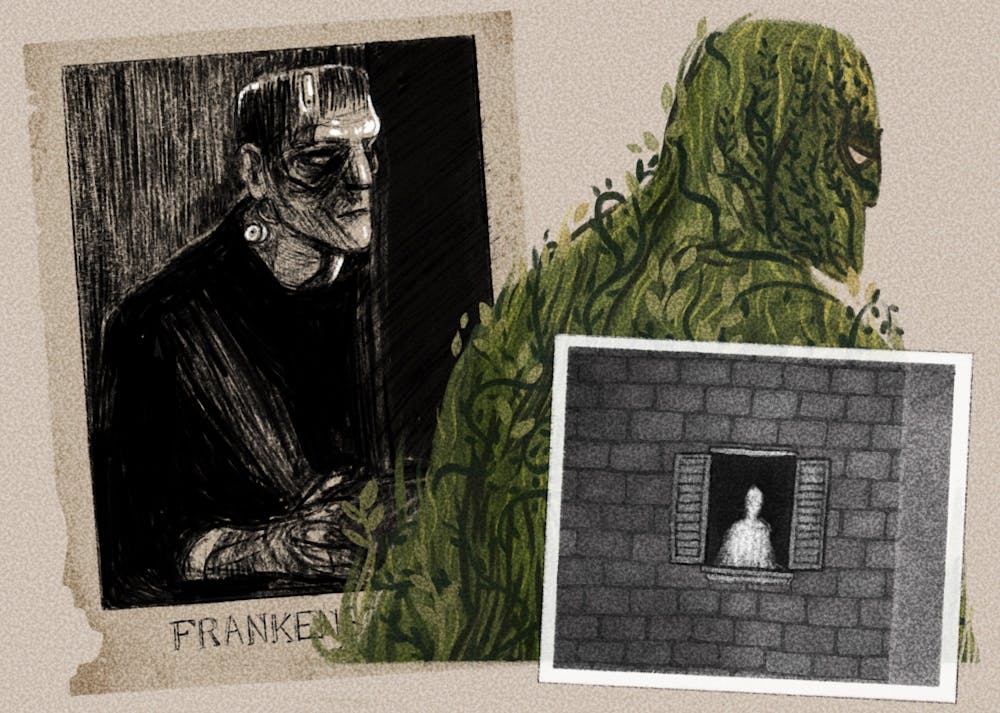The Trump presidency has officially come to an end.
At the time of writing this, it ended over three weeks ago, but it still feels fresh in our minds.
Gone are the days of wild Twitter rants and rampant lies, coming from the highest office in the nation. Now, the American people — particularly storytellers — have the luxury of looking back on the chaos of the past four years, knowing they are largely behind us.
While writers and comedians reflect on whether this presidency was actually as good for comedy, as many predicted, there is one genre unquestionably boosted by the chaos of Trump's time in office: horror.
It almost seems like the Trump years were a new Renaissance of what some may call "political horror".
With films like Jordan Peele's "Get Out" and "Us," as well as HBO's recent hit "Lovecraft Country," giving voices to marginalized communities within the horror genre, it feels as though many stories have suddenly become fixated on what goes Trump in the night.
But Emily Zarka, faculty associate for ASU's English department, host of the web series "Monstrum" and self-proclaimed "monster expert" disagreed.
"Horror has never not been political, ever," Zarka said. "To say that it hasn't been political is to ignore the real life consequences or, at least, thoughts and ideologies that these monster stories create."
For Zarka, who holds a doctorate in British romantic literature with an emphasis on the Gothic, the expression "monster history is human history" has become something of a catchphrase.
Her work looks at the history of scary stories and folklore, along with the ways it reveals deeper connections across cultures. To her, this supposed politicization of horror is nothing new, and has occurred since the dawn of man.
"There is not a culture, at any point in history, that I've come across in my research, that does not have monsters," Zarka said. "I think creating monsters is part of the human condition."
Given this trend, it's not surprising to see how horror dealing with sociopolitical issues regarding race and identity became a dominant part of the genre during the previous administration.
However, Donald Trump is now out of office, a pandemic still rages and many are worried we haven't seen the last of the extremism which fueled the Jan. 6 storming of the U.S. Capitol. This has caused some people to wonder: what kind of stories are next for the horror genre?
In a recent Twitter exchange, Zarka responded to this wondering, speculating we might see an increase in vampire, ghost and eco-horror stories.
A return of vampires? What could be the reason?
Well, according to Zarka, the key lies in the role vampires have as beings of power, drinking the blood of those they view as inferior.
“That, in some ways, is a fear of people in positions of power — in politics or otherwise — who are blood-suckers, themselves,” Zarka said. “That they’re preying on weaker individuals, for their own personal gain, and not giving anything back.”
She pointed to the recent comedy, horror film "Vampires vs. the Bronx," which follows a group of Black teenagers who must defend their neighborhood from invading vampires.
On the subject of ghosts, the rationale largely centered on the idea of the past coming back to haunt us, as well as enlighten us on what we may be missing.
"To have ghosts appearing, forces those alive to consider a new truth or new information," Zarka said. "I think the ghost narrative could be very effective and potentially healing."
Lastly, what the heck is eco-horror?
According to Zarka, it is a response to climate change and the increasing role humans have in the damaging of the environment. These types of stories can take any form from the recent "Godzilla" to movies and stories about disasters and nature fighting back against humans.
Regardless of where she may think horror will go, Zarka said she cannot know all the answers. After all, the beautiful thing about horror is its confrontational nature, and in the hands of marginalized groups, it looks like "political horror" is here to stay.
"I like to think of horror as undead," Zarka said. "It's in our faces and it’s coming back to walk the halls and force us to recognize its monstrosity."
Reach the reporter at nmdelga3@asu.edu and follow @DelGoada on Twitter.
Like The State Press on Facebook and follow @statepress on Twitter.
Continue supporting student journalism and donate to The State Press today.




